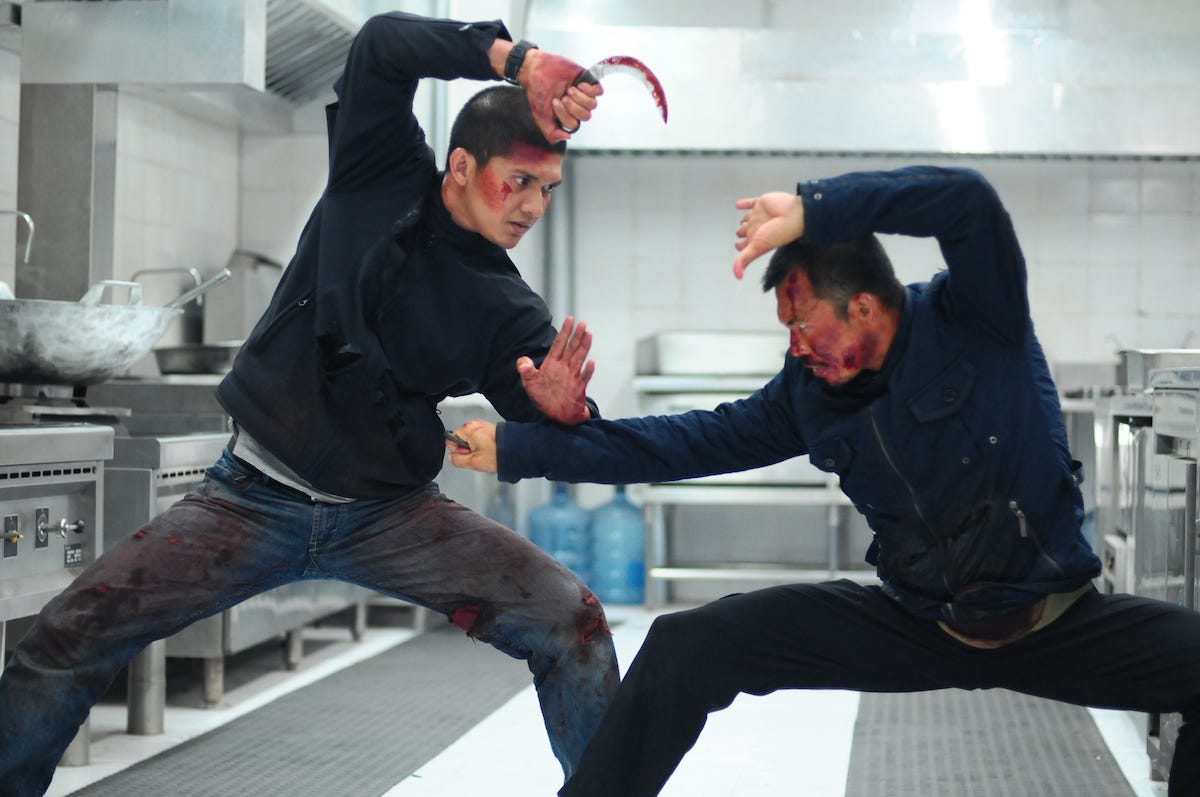Last week I noted briefly that Warner Bros.-Discovery and their honcho David Zaslav had earned an unnecessary black eye by gutting a small, but reputationally important, corner of the conglomerate’s holdings, Turner Classic Movies (TCM). Outrage ensued, leading to a rare bit of (fairly modest) corporate backtracking, as one of the programmers, Charles Tabesh, was kept on rather than being let go. Tabesh will be joined in the effort to revitalize TCM by directors Steven Spielberg, Martin Scorsese, and Paul Thomas Anderson, who will aid in programming.
The broader question remains: What does TCM look like in an age of streaming?
Like it or not, the future of televisual consumption is streaming. Cable is declining rapidly—in her newsletter for Puck this week, Julia Alexander noted that cable penetration has dropped by 50 percent over the last decade and will likely halve again over the next decade—and, with it, goes a very specific variety of TV viewing, one in which consumers passively sit and consume whatever happens to be playing on the channel they want to watch.
TCM matters because it’s almost the only channel that shows old movies, ad-free, and does so in a way designed to educate the viewer about the context in which the film was made, preceding presentations with little introductions taped by hosts and showing documentaries dedicated to the history of Hollywood. The curation is impeccable.
It is also—and this is intended to be descriptive, not to serve as a value judgment—dictatorial. Part of that is the inherent nature of canon formation, where authorities decide which works of art matter and what should persist through the decades. But it’s also a function of the medium of television: one movie shows at a time, and only that movie shows at that time. When you watch the channel, you are putting yourself and your viewing experience into someone else’s hands, asking them to guide you. I know folks who plan out their evenings by whatever is showing on TCM; DVRs are sometimes programmed weeks in advance to capture rarities. TCM is also one of the all-time champion networks for what I think of as compulsive finishing: “Well, I stumbled onto Casablanca during the roulette scene and just had to watch the rest.” Both types of viewing fundamentally involve giving up control, and they help create a wonderful community of viewers who share their joy on social media via the TCMParty hashtag.
The problem for TCM is that streaming, by its nature, is anarchic rather than authoritarian. Even well-curated services like the Criterion Channel offer an almost overwhelming number of options, asking viewers to choose their own cinematic adventure. Do I want to watch one of the movies in the Marilyn Monroe collection? No, the method acting program is more my speed. But then, I’ve never seen any of Gregg Araki’s films; maybe I should throw one of those on. Screwballs or erotic thrillers? Jennifer Jason Leigh or David Lynch? Yes, there are documentaries here, sure, there’s tons of context but … what do I watch? What do I need to know? Who will tell me what to do?
Zaslav was foolish to muck with TCM, given that he craves the approval of bold names like Spielberg and Scorsese. The broader question for TCM, though, is this: How do you translate the dictatorial ideal of a TV channel to the inherently anarchic reality of a streaming service? TCM is great, but it risks fading into irrelevance as cord-cutting proliferates. It’s not enough to simply transfer TCM’s library to Max: you have to recreate the experience of TCM—from the regimented schedule to the social viewing it inspires—and I don’t quite know how you do that. I hate asking a question that I don’t know the answer to in a newsletter like this, but I’m stumped.
The change in how we watch what we watch is just as important as the change in what we’re watching. And if we want to protect cultural treasures like TCM, we have to figure out how to adapt them to shifting audience behavior.
Make sure to check out this Friday’s Across the Movie Aisle, in which we discuss some of our favorite stage-to-screen adaptations.
Links!
CNN is coming to Max overseas in the coming months, and it’s only a matter of time until it’s available in the United States. Pursuant to the essay above, one looks at the popularity of Tubi and its competitors and wonders if the future of streaming is little mini-bundles with “channels” that reflect the WBD empire: a channel for CNN; a channel showing nothing but Sopranos reruns; a channel for Turner Sports; a channel showing one of the infinite varieties of Flip or Flop; a channel dedicated to TCM, etc.
Indiana Jones and the Dial of Destiny is out this week. Did I love it? Hate it? You’ll have to click to find out!
The ongoing creep of therapy culture in our day-to-day lives, as highlighted by this essay titled “Stop Firing Your Friends,” is a real problem and something we should consider snuffing out.
My main takeaway from this story about mobs of gibbering idiots on Goodreads getting books canceled is that we need more, not less, gatekeeping in the world of criticism. Leave it to the pros, people.
Assigned Viewing: The Raid: Redemption and/or The Raid 2 (Netflix)
I find these movies kind of fascinating because the first is as pure an action film as you’re going to find—high-octane martial arts set in one location almost from start to finish with juuuust enough plot to keep things moving—while the second one has roughly the same amount of action but stretched over an additional hour that aspires to something like The Raid: Redemption by way of The Godfather. Points for ambition on that sequel, but demerits for taking too long to get to the hitting. Less plotty, more punchy, please.





Great article. I hadn't really thought it out, but I do indeed often just choose to watch whatever is on TCM instead of going through my mental checklist of things I want to watch on streaming, etc. Won't be the same if/when that option is no longer available.
One thing TCM does is that it introduces you to films that you may never have known about or considered viewing: silent movies, which require some attention on the part of the viewer, and those interesting early 30s film made before the Production Code went into effect in 1934. This feature has become more interesting as they have expanded their portfolio.